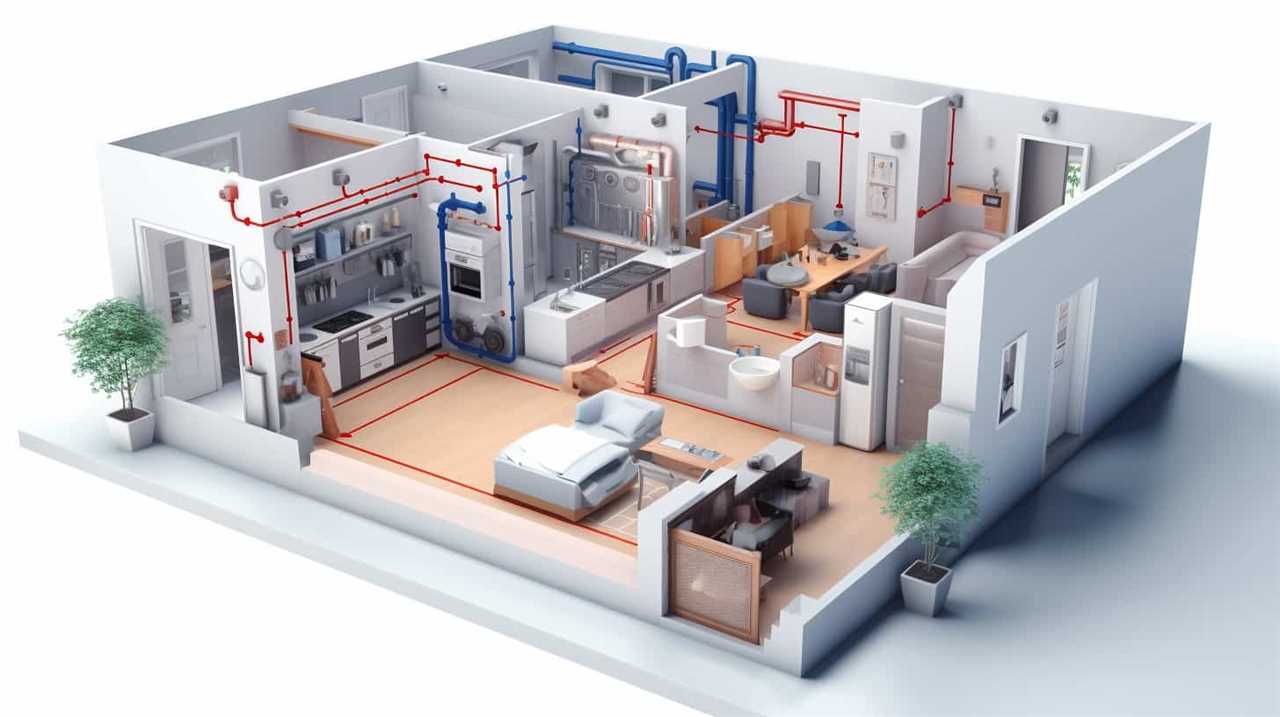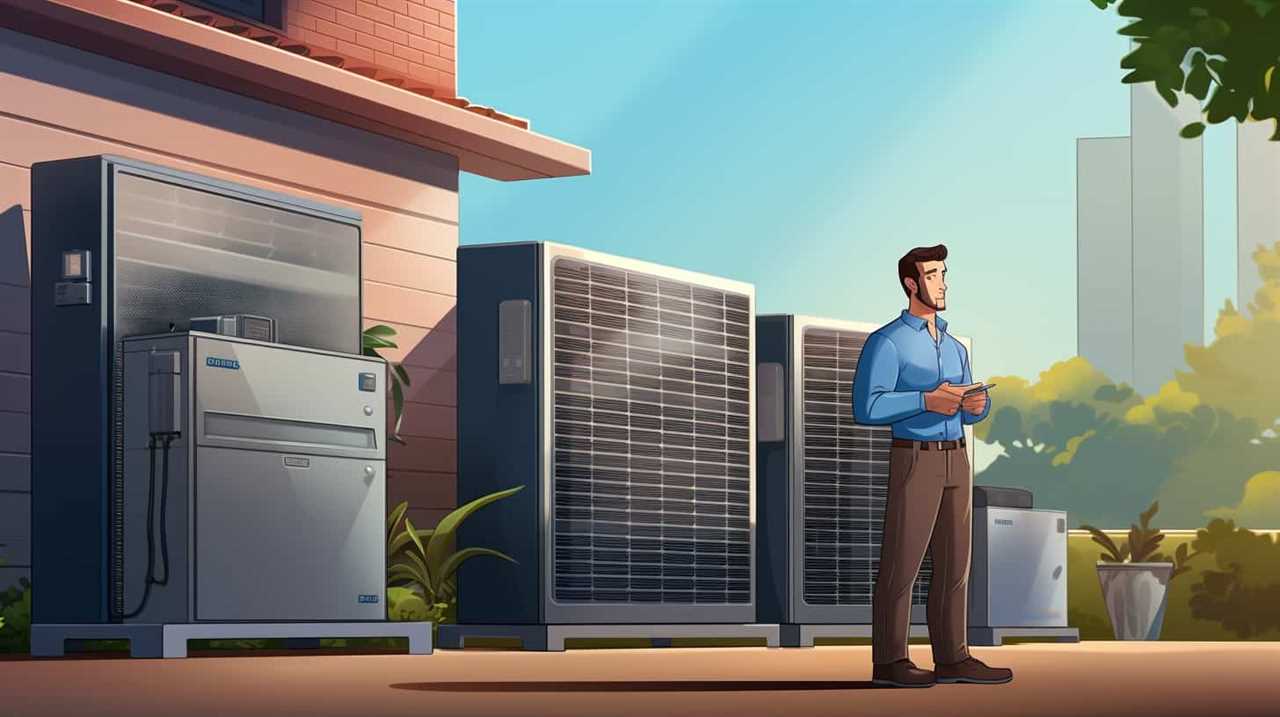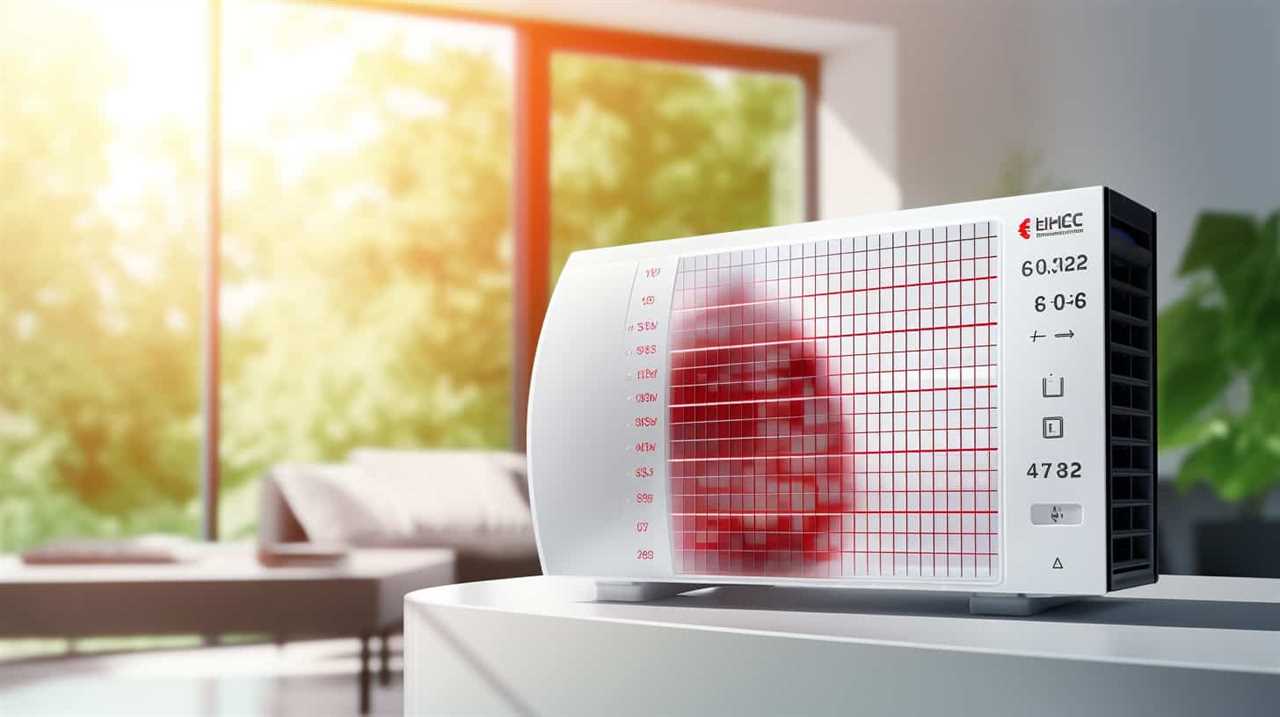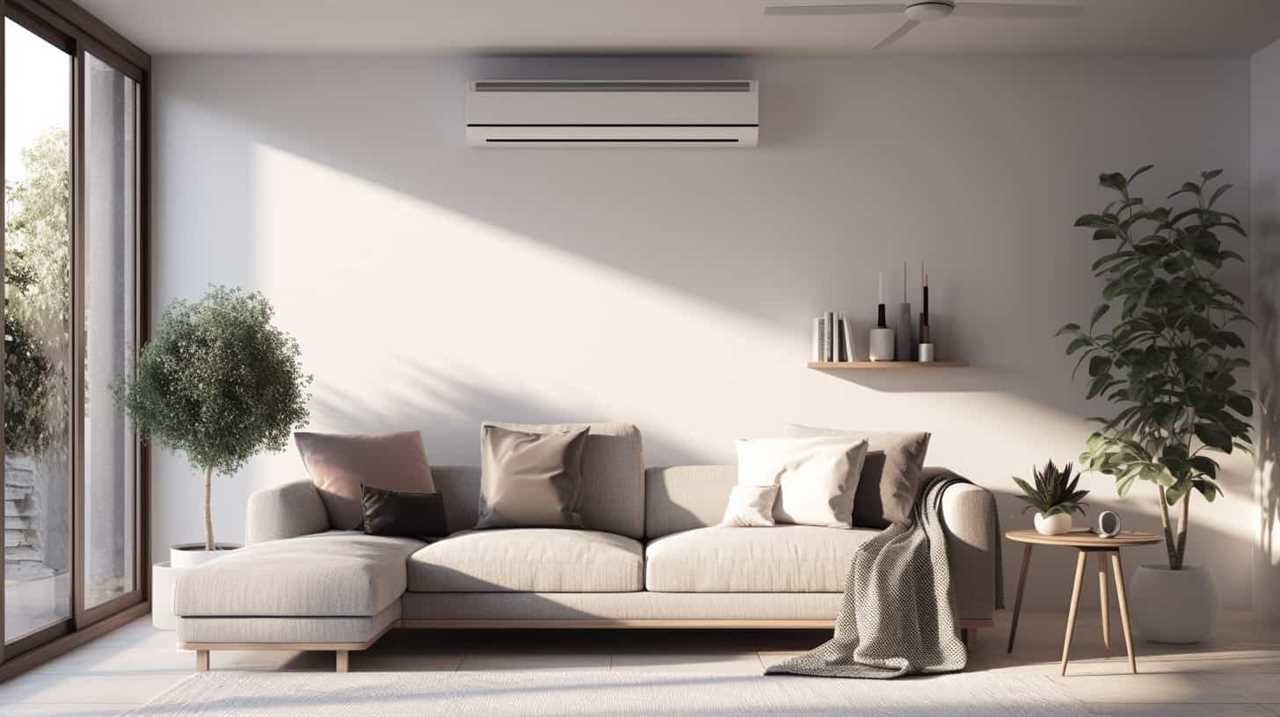Were you aware that heat pumps have the potential to decrease energy usage by as much as 50% when compared to conventional heating and cooling systems?
In this article, we’ll explore three eco-friendly ways heat pumps conserve energy.
We’ll delve into the efficiency of heat pump technology, the benefits of energy recovery ventilation, and the sustainability of geothermal heat pumps.
Additionally, we’ll discuss the integration of smart thermostats to maximize energy savings.

Join us as we discover these innovative and environmentally conscious solutions.
Key Takeaways
- Heat pumps utilize renewable energy sources for heating and cooling, contributing to a more sustainable way of heating and cooling.
- Heat pumps provide significant energy savings, offering up to four times more energy than they consume, and produce fewer greenhouse gas emissions compared to traditional systems.
- Energy recovery ventilation systems reduce the amount of energy needed to heat or cool the air, improve indoor air quality, and require regular maintenance for optimal performance and efficiency.
- Geothermal heat pumps can reduce energy consumption by up to 50%, offer cost savings over time, have minimal environmental impact, and are versatile for both heating and cooling purposes.
Efficient Heating and Cooling
Heat pumps provide efficient heating and cooling by utilizing renewable energy sources. They extract heat from the air, ground, or water and transfer it indoors or outdoors, depending on the desired temperature. This process is highly efficient because it doesn’t require the burning of fuel to generate heat. Instead, it simply moves heat from one place to another, using minimal energy. By utilizing renewable energy sources such as ambient air or geothermal heat, heat pumps contribute to a more sustainable and environmentally friendly way of heating and cooling spaces.
Heat Pump Technology
With heat pump technology, we can maximize energy efficiency and reduce our carbon footprint by utilizing renewable energy sources to transfer heat. Heat pumps offer several benefits in terms of heat pump efficiency and environmental impact:
-
Energy savings: Heat pumps can provide up to four times more energy than they consume, resulting in significant energy savings.

-
Lower greenhouse gas emissions: By using renewable energy sources such as air, water, or ground, heat pumps produce fewer greenhouse gas emissions compared to traditional heating and cooling systems.
-
Versatility: Heat pumps can be used for both heating and cooling purposes, making them a versatile solution for year-round comfort.
-
Long lifespan: Heat pumps have a longer lifespan compared to other heating and cooling systems, reducing the need for frequent replacements and minimizing waste.
-
Financial savings: While heat pumps may have higher upfront costs, the long-term energy savings they offer can lead to significant financial savings over time.

Energy Recovery Ventilation
We can achieve significant energy savings with energy recovery ventilation systems. These systems work by using the heat from the exhaust air to preheat the incoming fresh air, reducing the amount of energy needed to heat or cool the air. Not only does this help conserve energy, but it also improves indoor air quality by removing pollutants and excess moisture from the air.
Energy recovery ventilation systems require regular maintenance to ensure optimal performance, such as cleaning or replacing filters and checking the system for any leaks or malfunctions. By properly maintaining these systems, we can ensure that they continue to operate efficiently and provide clean, fresh air for our homes or buildings.
Now, let’s move on to the next section where we’ll discuss geothermal heat pumps.
Geothermal Heat Pumps
Geothermal heat pumps efficiently utilize the Earth’s natural heat and cooling properties, providing a sustainable and eco-friendly solution for heating and cooling our homes. Here are five benefits of geothermal energy and why geothermal heat pump installation is worth considering:

-
Energy efficiency: Geothermal heat pumps can reduce energy consumption by up to 50% compared to traditional heating and cooling systems.
-
Cost savings: With lower energy consumption, geothermal heat pumps can significantly reduce utility bills over time.
-
Environmental friendliness: Geothermal heat pumps produce fewer greenhouse gas emissions and have a minimal impact on the environment.
-
Long lifespan: Geothermal heat pumps have a longer lifespan compared to conventional systems, reducing the need for frequent replacements.

-
Versatility: Geothermal heat pumps can be used for both heating and cooling, making them a versatile solution for year-round comfort.
With these benefits in mind, let’s explore how geothermal heat pumps can be integrated with smart thermostats for even greater energy efficiency and convenience.
Smart Thermostat Integration
By integrating smart thermostats, we can maximize energy efficiency and convenience when using heat pumps. Smart thermostats offer advanced energy management features that allow users to control their heating and cooling systems remotely. These devices use sensors and algorithms to automatically adjust temperature settings based on occupancy and weather conditions. This not only reduces energy waste but also provides cost savings by optimizing energy usage.
Smart thermostats can learn user preferences and create personalized schedules, ensuring comfort while minimizing energy consumption. Additionally, these devices can provide real-time energy usage data, allowing users to track and analyze their energy consumption patterns.

Frequently Asked Questions
How Much Does It Cost to Install a Geothermal Heat Pump System?
Installing a geothermal heat pump system can vary in cost depending on factors like the size of the property and the specific requirements. However, the long-term benefits, such as reduced energy consumption and lower utility bills, make it a worthwhile investment.
Can a Heat Pump Be Used for Both Heating and Cooling?
Yes, a heat pump can be used for both heating and cooling. It’s a versatile system that efficiently transfers heat from one place to another, providing the advantages of energy conservation and cost savings.
Are Heat Pumps Noisy?
Yes, heat pumps can be noisy, but modern models are designed to minimize noise. The heat pump installation process should include proper sound insulation. The benefits of using heat pumps in residential buildings outweigh the potential noise concerns.
Do Heat Pumps Require Regular Maintenance?
Yes, heat pumps do require regular maintenance to ensure optimal performance. However, they are eco-friendly alternatives that conserve energy by transferring heat instead of generating it, reducing greenhouse gas emissions.

Can a Heat Pump Be Used in Extremely Cold Climates?
Yes, a heat pump can be used in extremely cold climates. Despite lower heat pump efficiency in colder temperatures, the benefits of heat pumps in these climates include reduced heating costs and lower environmental impact.
Conclusion
In conclusion, heat pumps offer a range of eco-friendly ways to conserve energy. From efficient heating and cooling to energy recovery ventilation and geothermal heat pumps, these systems are designed to minimize waste and maximize efficiency.
With the integration of smart thermostats, homeowners have even more control over their energy usage.
It’s ironic that while staying comfortable, we can also help protect the environment.

So why not choose an eco-friendly option and save both energy and money in the process?









